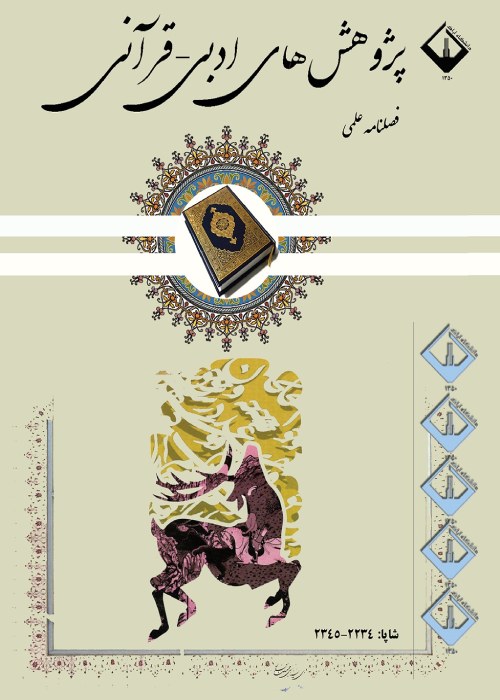Qur anic and Tradition Intertextuality in Debel Khzay's Poetry
Author(s):
Abstract:
Intertextuality is a new trend in literary criticism which considers the relationships and interactions between the texts. According to this theory, no text is unique, independent of other relating texts, and literary texts interact and interrelate with each other. As such texts and their authors influence each other and un/consciously benefit from their literary and intellectual sources. This notion has certain functions and reflections in the literature of nations, since literature is the arena of such interrelations, and the literary masterpieces of every nation is subject to influence and mimicry by poets and authors of ages.Religious texts are of sources from which Muslim literary writers have always benefited. The Glorious Qur’an is the most significant and conspicuous source which its literary and rhetorical aspects together with its ethical concepts and teachings caused it to have a especially high positions among Muslim men of letters. These have been always dealing with the Qur’an and its influential concepts, and have reflected in/directly the Qur’anic concepts and meanings in their works. Of these, is the prominent and responsible Shiite poet, Debel -e-Khazaie, who devoted his life and poetic career to defending the House holders of the Prophet (S), development of Shiite’s precepts, and developing the Qur’an and Hadith via his poetry. Intertextual relations of the Qur’an and Debel ’s poetry are very fine-looking and harmonic. This renowned Shiite poet has been deeply influenced by and benefited from the Qur’an and the Prophet’s Hadiths; the depth of such literal and semantic influences is quite apparent in his poems. In fact, he decorated his poetic language with that of the Qur’an and Hadith. The intertextual form of of Debel ’s poetry is direct or explicit, and is based on minor negation (ejterar) and sometimes parallel negation (emtesas)This study examines Debel Khazaie’s poetry from the perspective of intertextuality. After evaluating his poems based on the principles of this theory, it goes on to determine the influences of the Qur’an and Hadith on his poems.
Keywords:
Language:
Persian
Published:
Literary - Qura'nic Researches, Volume:1 Issue: 1, 2013
Page:
53
magiran.com/p1144685
دانلود و مطالعه متن این مقاله با یکی از روشهای زیر امکان پذیر است:
اشتراک شخصی
با عضویت و پرداخت آنلاین حق اشتراک یکساله به مبلغ 1,390,000ريال میتوانید 70 عنوان مطلب دانلود کنید!
اشتراک سازمانی
به کتابخانه دانشگاه یا محل کار خود پیشنهاد کنید تا اشتراک سازمانی این پایگاه را برای دسترسی نامحدود همه کاربران به متن مطالب تهیه نمایند!
توجه!
- حق عضویت دریافتی صرف حمایت از نشریات عضو و نگهداری، تکمیل و توسعه مگیران میشود.
- پرداخت حق اشتراک و دانلود مقالات اجازه بازنشر آن در سایر رسانههای چاپی و دیجیتال را به کاربر نمیدهد.
In order to view content subscription is required
Personal subscription
Subscribe magiran.com for 70 € euros via PayPal and download 70 articles during a year.
Organization subscription
Please contact us to subscribe your university or library for unlimited access!



